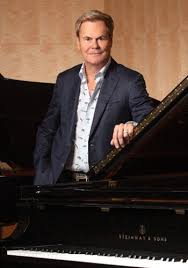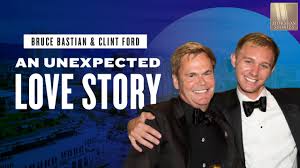Who’s this guy? Queer readers in India and all over the world, know this. We lost another stalwart and role model. He was one of the computer pioneers, the doyen of word processing software in the 80’s.
Son of a fiddle-playing farmer
Bruce Wayne Bastian was born on March 23, 1948, in Twin Falls, Idaho. Raised in the Church of Jesus Christ of Latter-day Saints, ( a Christian denomination known as Mormons). He grew up in the Magic Valley region of south-central Idaho.
Bruce was the fifth of six children, with a mother who managed the family’s affairs and a father who played the bass fiddle in dance bands, owned grocery stores, and farmed. From a young age, Bruce knew he was different, struggling to reconcile his sexuality with his faith.
“I didn’t think there was another gay person on earth besides me,” Bruce said in a 2018 interview with the LGBTQ+ organisation Outwords, reflecting on his childhood. “I thought I was totally weird.”
A Refuge in Music
From boyhood, Bruce found solace in music. He took up the piano at the age of six and later learned the clarinet and saxophone. His passion for music led him to Brigham Young University (BYU), where he graduated in 1973 with a degree in music.
For a few years, he worked as the director of the BYU marching band, choreographing halftime shows and teaching students to perform “The Cougar Song” at football games.
Shift to Technology
Bruce’s career took an unexpected turn when BYU decided it wanted someone with a PhD to lead the Cougar Marching Band, and he was let go.
“Looking back,” he told Salt Lake City Weekly, “it was the best thing that happened to me.” Already studying for a master’s degree in music, Bruce decided to switch to a master’s programme in computer science, with Alan C. Ashton as his faculty adviser.
This change in direction proved pivotal. Bruce and Professor Ashton collaborated on a programme to help choreograph marching band formations, which laid the groundwork for their future endeavours.
Birth of WordPerfect
After earning his degree in 1978, Bruce joined forces with Ashton to develop a word processor for government bureaucrats in Orem, Utah. This software evolved into WordPerfect, which quickly became the dominant word processor of the 1980s and early ’90s. Released commercially in 1980, WordPerfect was praised for its clean display, ease of use, and excellent technical support.
“While it isn’t as perfect as its name implies, WordPerfect is very impressive,” wrote journalist Lindsy Van Gelder in a 1983 review for PC Mag.
Bruce played a crucial role in the company, doing much of the programming himself and overseeing international operations as chairman. By 1990, WordPerfect had more than 7,000 employees, and Bruce was one of the country’s richest men.
Personal Awakening
Despite his professional success, Bruce’s personal life was fraught with turmoil.
He had married Melanie Laycock in 1976, and they raised four sons together. However, during business trips to Europe, Bruce began to explore his sexuality more openly.
He experienced a gradual awakening during business trips to Europe, where he encountered gay bars for the first time and saw openly gay men walking hand-in-hand.
“I started to question myself,” Bruce said. “And question whether I was as bad a person as the church was telling me I was.”
Coming Out and Advocacy
“I don’t think straight people can begin to imagine the inner turmoil and fear at this moment in a gay person’s life,” he told the Tribune in 2004. “All your dreams, plans, everything falls apart. The whole foundation of your life crumbles. You can stay the course or follow your heart and go to where every human being dreams of going — to happiness ever after.”
Bruce eventually came out to his wife and later divorced.
He renounced his faith, deciding he could not be both gay and a Mormon.
In 1995, he resigned from Novell’s board of directors to focus on philanthropy and LGBTQ+ advocacy. Over the next two decades, Bruce dedicated himself to fighting for LGBTQ+ rights, serving on the board of the Human Rights Campaign and donating generously to various causes.
“I’m doing this for the kid in Idaho, growing up on a farm,” he told the Salt Lake Tribune. “I don’t want him to go through the [stuff] I went through.”
Impact on LGBTQ+ Rights
Bruce’s efforts were instrumental in several key victories for LGBTQ+ rights. He co-chaired a successful campaign to defeat the Federal Marriage Amendment, donated $1 million to fight California’s Proposition 8, and supported numerous LGBTQ+ organisations. Despite facing personal challenges, including a strained relationship with his former business partner Alan Ashton, Bruce remained steadfast in his advocacy.
Mr. Bastian said his advocacy efforts were driven by memories of the self-loathing and confusion he experienced as a boy. “As a gay person, you grow up hating yourself. No matter how much you accomplish in life, you will be a failure because you are gay,” he told the Tribune.
“No individual has had a greater impact on the lives of LGBTQ Utahns than Bruce Bastian,” said Troy Williams, executive director of Equality Utah. “Every success our community has achieved over the past three decades can be traced directly back to his love and support.”
Passion for the Arts
In addition to his advocacy work, Bruce was a passionate supporter of the arts. He donated 55 Steinway pianos to the University of Utah’s music programme, supported Ballet West and the Utah Symphony, and backed Equality Utah and the Utah Pride Center. His contributions enriched the cultural landscape of Utah and provided opportunities for countless individuals to pursue their artistic dreams.
A Final Farewell
Bruce Bastian passed away on June 16 at his home in Palm Springs, California, at the age of 76. The cause was complications from pulmonary fibrosis, as reported by his son Rick Bastian. Bruce is survived by his husband of six years, Clint Ford; his four sons, Rick, Darren, Jeff, and Robert Bastian; two sisters; a brother; and 14 grandchildren. Though he also had homes in London and Palm Springs, Bruce maintained strong ties to Utah, where he sought to promote the arts and LGBTQ+ rights.
Remembering Bruce Bastian
Like so many LGBT elders, Bruce Bastian’s life was a testament to the power of resilience, innovation, and advocacy. From his humble beginnings as a farmer’s son in Idaho to his groundbreaking work in technology and tireless efforts for LGBTQ+ rights, Bruce’s story will continue to inspire and uplift us.
He leaves behind a world significantly better for his contributions, both in the tech industry and in the fight for equality and acceptance.



